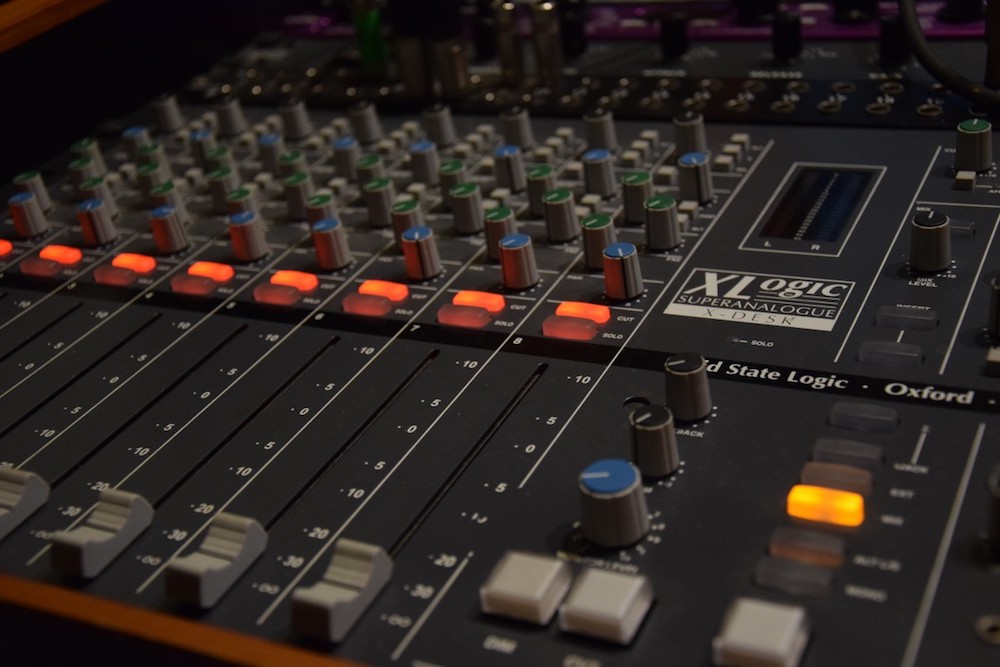There are a lot of perspectives and opinions on whether going to college for audio engineering is worth it. One of the biggest arguments against working on a sound engineering degree is that it’s really no substitute for real-world experience and practice. However, there are plenty of reasons why studying audio formally is an awesome thing to do, too.
If you’re trying to decide whether going to college for a sound engineering degree is worthwhile, let’s talk about some of the biggest upsides of doing so!
Meeting Likeminded People
This should be an obvious reason, and one of the main upsides of going to college for anything, really. Going to school for audio engineering means you’ll have the opportunity to meet likeminded individuals and develop meaningful personal and professional relationships.
Collaboration is one of the best ways to get better—learning someone else’s techniques and applying them in a way which works for you is invaluable. Anyone pursuing audio in higher education is there for a reason; these are your peers, and getting to know them can wind up being an indirect way of getting better at your craft.
Learning the Basics
If you’re completely clueless with anything and everything audio-related, you’ll learn more than you ever could have imagined.
Personally, I didn’t even know what “mixing” was until it was demonstrated to me at school. I didn’t know anything about acoustics and the science of sound, and I had only a cursory knowledge of the equipment used to produce music. I left with knowledge of all these things, a familiarity of studio etiquette, Pro Tools keyboard shortcuts, and tons of other practical knowledge I immediately applied to an internship.
You’ll become extremely familiar with the basics, but you’ll have to let the real world show you the rest.
You’ll Earn a College Degree
It’s always satisfying to accomplish something you’ve set your mind to. While a piece of paper may not mean much to some, it’s nevertheless a physical representation of your academic achievements. That’s something to be proud of!
Using Amazing Equipment
A school that’s worth its salt will likely have a fantastic facility and top-of-the-line equipment for students to use. I was particularly lucky; mine had two full-sized, multi-million dollar studios with SSL consoles and a phenomenal mic locker.
This may not be the exact case everywhere, but you’ll no doubt have the opportunity to play with stuff you don’t/won’t own personally. This is great preparation for an internship at a commercial studio. This is 2019, though, and working in-the-box at small boutique studios is becoming more and more prevalent. If you never sit at an SSL console after your sound engineering degree, you will have at least had the experience.
Your Skills Apply to Audio Overall
Most audio programs teach just that: audio. That means that while you’ll definitely study music production, you’ll also learn about live sound reinforcement and sound for film, TV, or broadcast. This is great if you’re still unsure of exactly what you want to do! For example, the post production field is a great option for a more “regular” lifestyle as opposed to the controlled chaos of being a music engineer.
Making Mistakes
No one expects you to be a seasoned audio pro when you’re working on an undergrad sound engineering degree. This gives you the freedom to make mistakes inconsequentially (grades withholding, of course!).
Without the real-world pressure of a chief engineer or client breathing down your neck, you can take your time, screw things up, screw things up again, and learn from your mistakes. That’s the whole point of higher education!
Meeting Future Clients
Audio engineering programs tend to work closely with performing arts programs to get student musicians in the studio with student engineers. Projects where you have to record other students is a great way to develop relationships with musicians who can become future clients.
Your work probably won’t be amazing right away, but if you present yourself to musicians in a way that suggests growing together, chances are you’ll have a willing client!
Access to Audio Professionals
The faculty in audio programs are professional engineers themselves. Don’t be afraid to pick their brains about more than just recording techniques—how to build a career, for instance, is something they probably have a lot of insight for. Take full advantage of the many resources provided to students.
